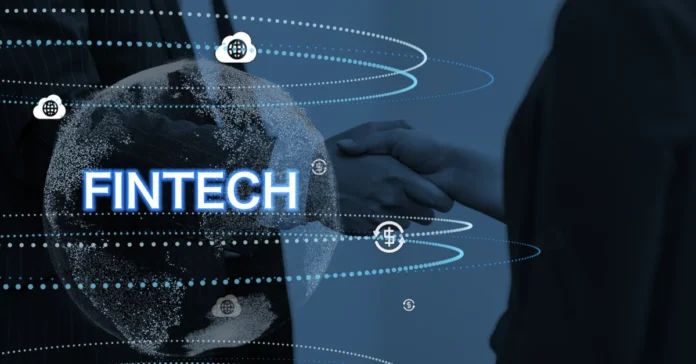The rollout of 5G technology is set to be a game-changer for multiple industries, including FinTech. With its promise of ultra-fast speeds, low latency, and higher connectivity, 5G can significantly enhance the performance of financial services and accelerate the digital transformation within the sector. Here’s how 5G can impact FinTech:
1. Real-Time Transactions and Payments
- Faster and Smoother Transactions: 5G’s ultra-low latency and high-speed data transfer will enable real-time processing of payments and financial transactions. This is crucial for FinTech companies offering services like mobile payments, peer-to-peer (P2P) transfers, and digital wallets.
- Reduced Latency: Instantaneous transaction processing is particularly valuable in sectors like trading and investing, where delays of even a few milliseconds can lead to significant financial consequences.
Example: A mobile payments app that uses 5G technology can enable users to make instant payments anywhere, anytime, without worrying about network delays.
2. Enhanced Mobile Banking and Digital Wallets
- Improved Mobile Banking Experience: 5G will enhance mobile banking apps by enabling smoother access to real-time financial data, including account balances, transaction histories, and investment tracking. The increased speed can also handle more complex tasks, such as advanced financial analytics, directly on mobile devices.
- Digital Wallets: With 5G, users can securely store and use digital currencies and make transactions through mobile wallets with enhanced speed and security.
Example: A digital wallet app on 5G will allow users to make fast, secure payments, and access services like instant money transfers and cryptocurrency exchanges without waiting for slow data processing.
3. Boosting Financial Inclusion with 5G Connectivity
- Bringing Services to Rural Areas: 5G’s increased connectivity can help FinTech companies offer their services in rural or underserved areas. Faster networks can allow more people to access online banking, loans, insurance, and investment tools, reducing the barriers to financial inclusion.
- Access to Mobile-First Financial Services: In regions where traditional banking infrastructure is limited, 5G can provide the necessary network speed to deliver mobile-first financial services to a broader audience.
Example: FinTech platforms can provide microloans, savings programs, and insurance directly to users in remote areas, helping them access financial services that were previously unavailable due to poor internet connectivity.
4. Improved Security and Fraud Prevention
- Enhanced Encryption and Authentication: 5G’s more secure network infrastructure will improve the security of financial transactions by offering advanced encryption and more reliable authentication methods, like biometric verification.
- Real-Time Fraud Detection: With faster data transfer, financial institutions can implement more sophisticated fraud detection systems. Machine learning algorithms can analyze transactions in real-time, identifying and flagging suspicious activities instantly.
Example: 5G-enabled mobile apps can use biometrics like facial recognition and fingerprint scanning to authenticate transactions, ensuring higher levels of security for both consumers and businesses.
5. Streamlined Blockchain and Cryptocurrency Transactions
- Faster Blockchain Transactions: 5G’s low latency and high bandwidth will improve the speed and scalability of blockchain technology, allowing for quicker and more secure cryptocurrency transactions.
- Decentralized Finance (DeFi): With 5G, decentralized financial services (DeFi) platforms that rely on blockchain can process more transactions simultaneously, enhancing the overall efficiency of the ecosystem.
Example: Cryptocurrency exchanges and DeFi platforms will be able to offer faster transaction confirmations and more efficient cross-border payments.
6. The Role of 5G in Financial Data Analytics
- Big Data and AI-Driven Insights: 5G’s high-speed data transfer allows FinTech companies to process vast amounts of financial data in real time. This can lead to more accurate data analytics, allowing for more personalized financial products and improved customer service.
- Instant Insights for Better Decision-Making: With 5G, financial institutions can leverage artificial intelligence and machine learning algorithms to analyze real-time data, enabling them to make smarter, faster decisions regarding loans, investments, and other services.
Example: A FinTech firm can process live market data to make dynamic investment recommendations, providing more tailored options for customers based on real-time trends.
7. Empowering the Internet of Things (IoT) in Finance
- Smarter Financial Products: The combination of 5G and IoT will allow FinTech companies to develop new, connected financial products. For example, smart insurance policies that adjust premiums based on real-time data from IoT devices (like a car’s location or a home’s security system).
- IoT and Real-Time Risk Assessment: 5G can enable real-time risk assessment in areas such as insurance, where data from connected devices (e.g., health wearables, connected cars, or smart homes) can be used to offer dynamic pricing models.
Example: A health insurance company could use 5G to track users’ health data in real time through wearables and adjust premiums or offer rewards based on their fitness levels.
8. FinTech in Smart Cities and Digital Infrastructure
- Smart City Payments and Services: 5G will play a significant role in the development of smart cities, enabling seamless payment systems for transportation, parking, utilities, and more. Financial services will be integrated directly into the smart infrastructure of cities.
- Real-Time Financial Services: As cities become more digitally connected, 5G-powered financial services will be critical for supporting payments, loans, and banking services in real-time as users move throughout the city.
Example: A smart city might offer a connected payment system for commuters, allowing them to pay for transportation, parking, or public services instantly through their mobile devices, powered by 5G networks.
9. Accelerating the Adoption of Digital Currencies
- Faster Cross-Border Payments: 5G can help FinTech companies and banks offer faster cross-border payments, particularly for cryptocurrencies. With faster processing speeds, digital currencies like Bitcoin or Ethereum can be used for seamless international transactions.
- Central Bank Digital Currencies (CBDCs): As governments explore the creation of central bank digital currencies, 5G’s capabilities will allow for efficient digital currency payments that can be processed quickly and securely across borders.
Example: Cross-border payments using CBDCs could be completed within seconds, bypassing traditional banking systems and reducing transaction fees.
10. The Future of FinTech with 5G
- Fostering Innovation: 5G will open up new opportunities for FinTech startups and innovators to create groundbreaking financial products and services that were previously not possible due to network constraints.
- Transforming User Experiences: From mobile banking to investment management, the 5G network will empower FinTech companies to deliver faster, more reliable, and more secure services to users globally.
Example: FinTech apps can now incorporate augmented reality (AR) and virtual reality (VR) for immersive financial planning and investment experiences, enabled by 5G’s speed and low latency.
Conclusion: 5G is a Game Changer for FinTech
5G technology will play a pivotal role in the evolution of FinTech by enabling faster, more secure, and more efficient financial services. From real-time transactions and enhanced security to innovations like smart insurance and blockchain improvements, the future of FinTech is poised to be transformed by 5G. Companies that embrace these changes will not only be able to offer better services to customers but also stay ahead in the highly competitive digital finance space.
#5G #FinTech #DigitalTransformation #MobileBanking #FutureOfFinance #Payments


